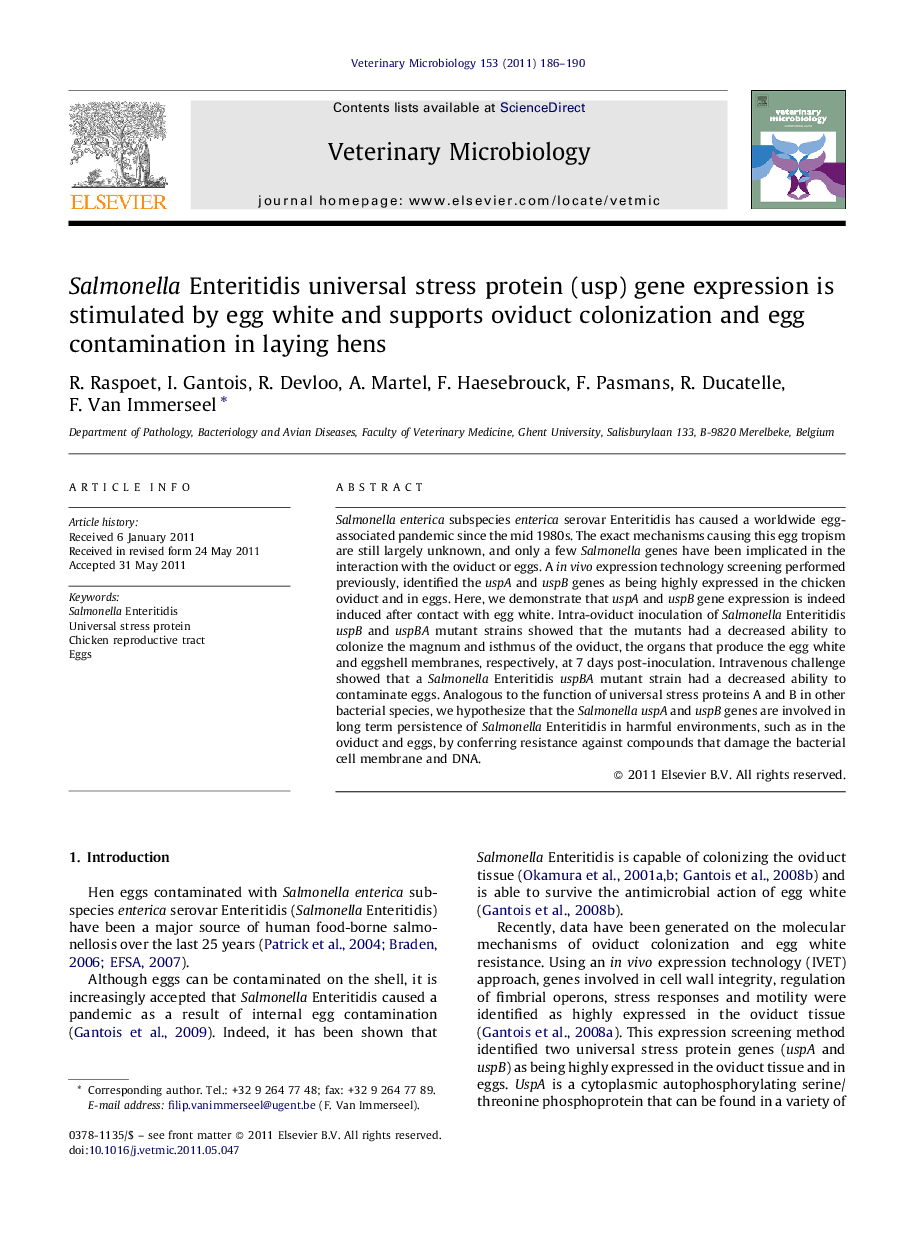| Article ID | Journal | Published Year | Pages | File Type |
|---|---|---|---|---|
| 2467503 | Veterinary Microbiology | 2011 | 5 Pages |
Salmonella enterica subspecies enterica serovar Enteritidis has caused a worldwide egg-associated pandemic since the mid 1980s. The exact mechanisms causing this egg tropism are still largely unknown, and only a few Salmonella genes have been implicated in the interaction with the oviduct or eggs. A in vivo expression technology screening performed previously, identified the uspA and uspB genes as being highly expressed in the chicken oviduct and in eggs. Here, we demonstrate that uspA and uspB gene expression is indeed induced after contact with egg white. Intra-oviduct inoculation of Salmonella Enteritidis uspB and uspBA mutant strains showed that the mutants had a decreased ability to colonize the magnum and isthmus of the oviduct, the organs that produce the egg white and eggshell membranes, respectively, at 7 days post-inoculation. Intravenous challenge showed that a Salmonella Enteritidis uspBA mutant strain had a decreased ability to contaminate eggs. Analogous to the function of universal stress proteins A and B in other bacterial species, we hypothesize that the Salmonella uspA and uspB genes are involved in long term persistence of Salmonella Enteritidis in harmful environments, such as in the oviduct and eggs, by conferring resistance against compounds that damage the bacterial cell membrane and DNA.
